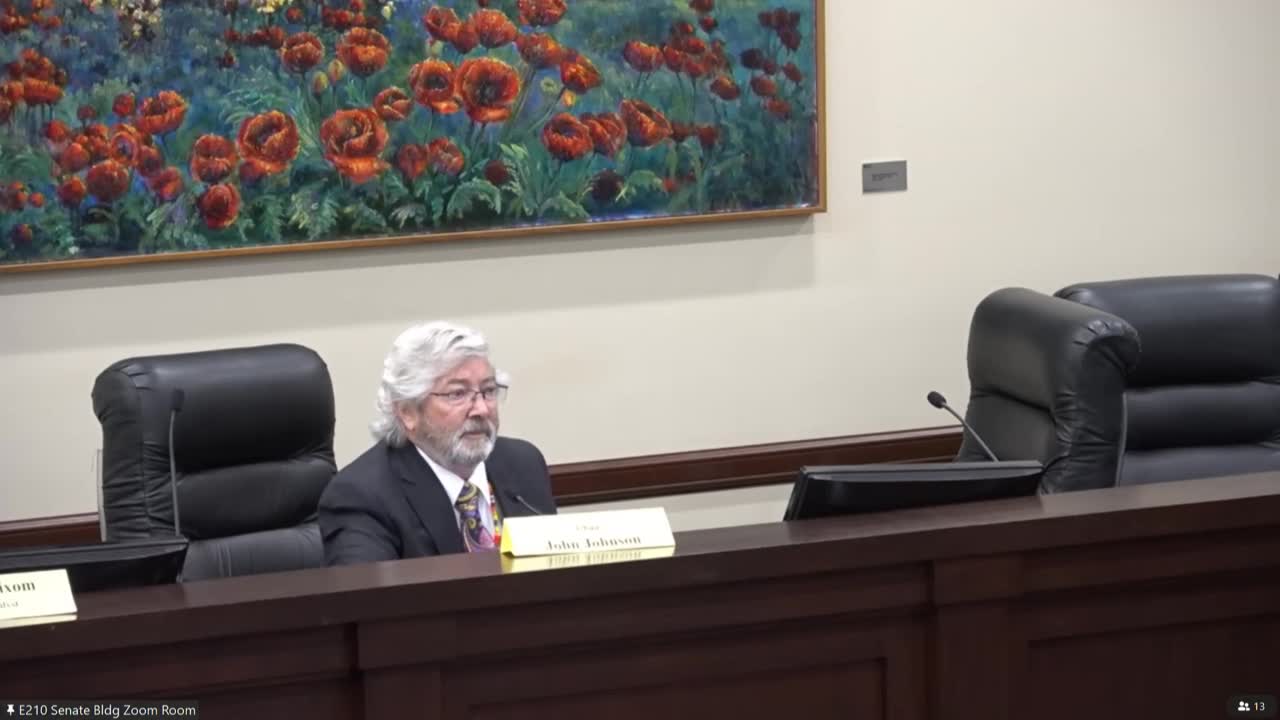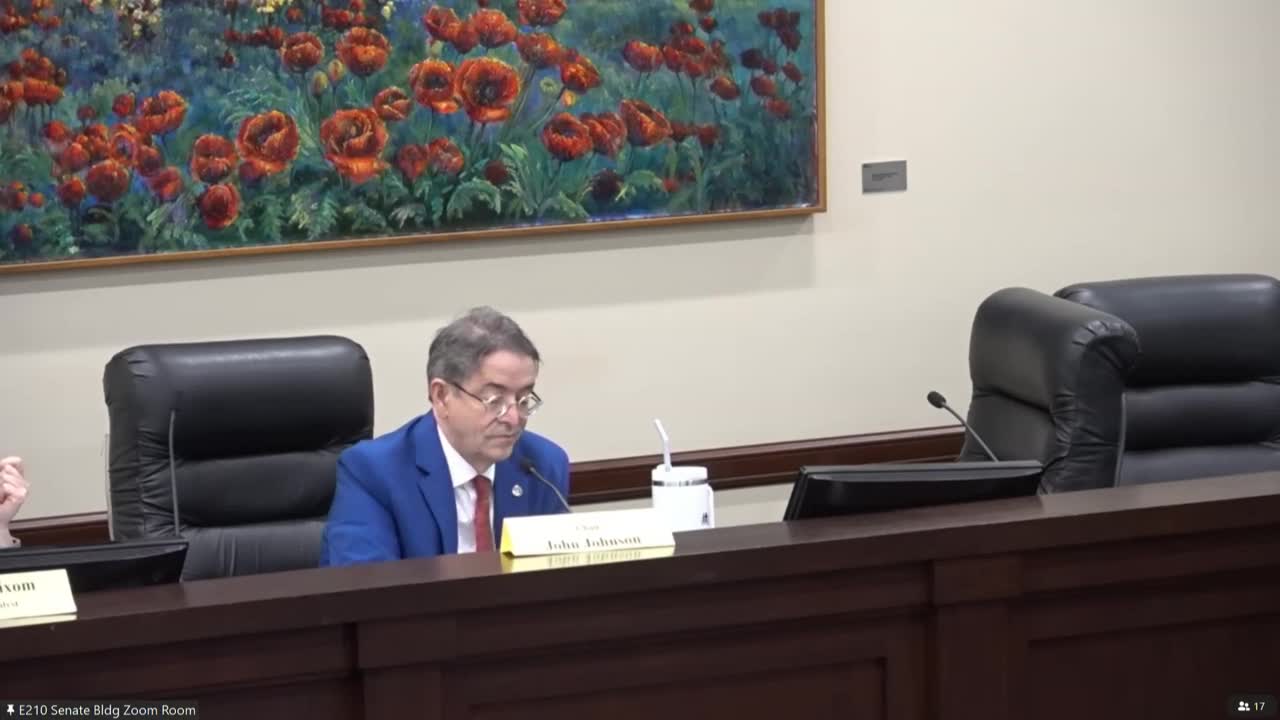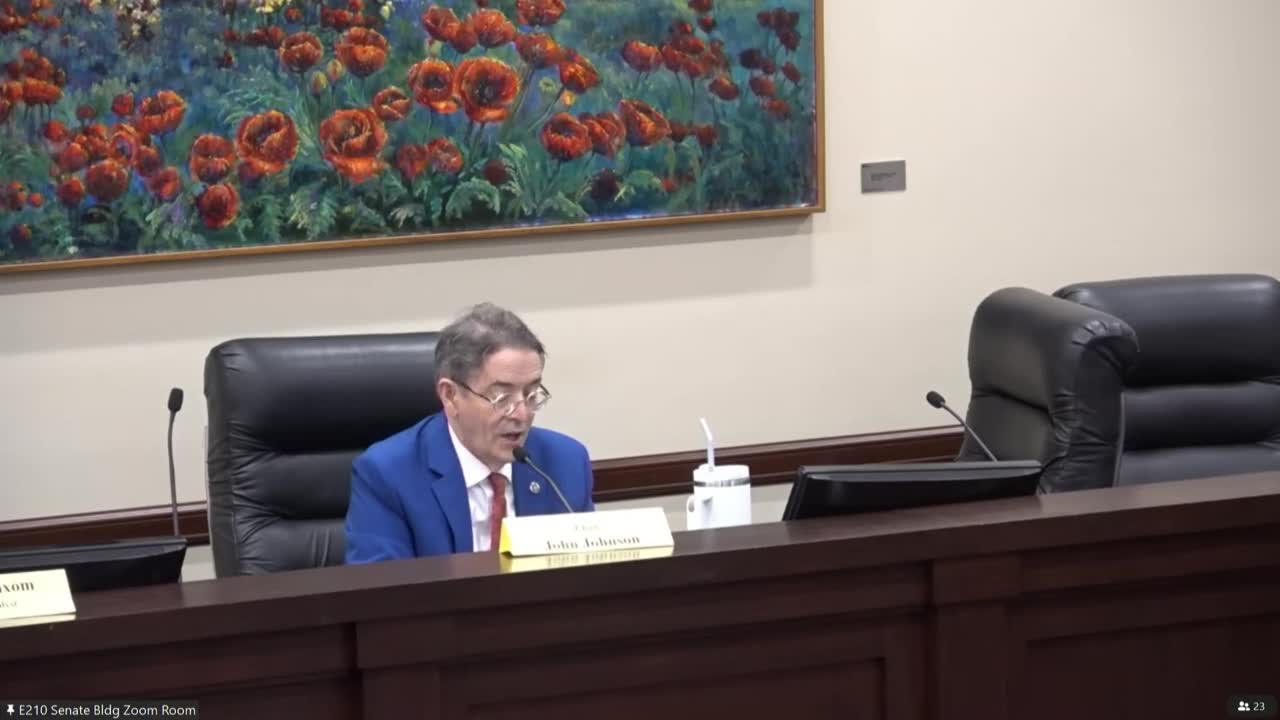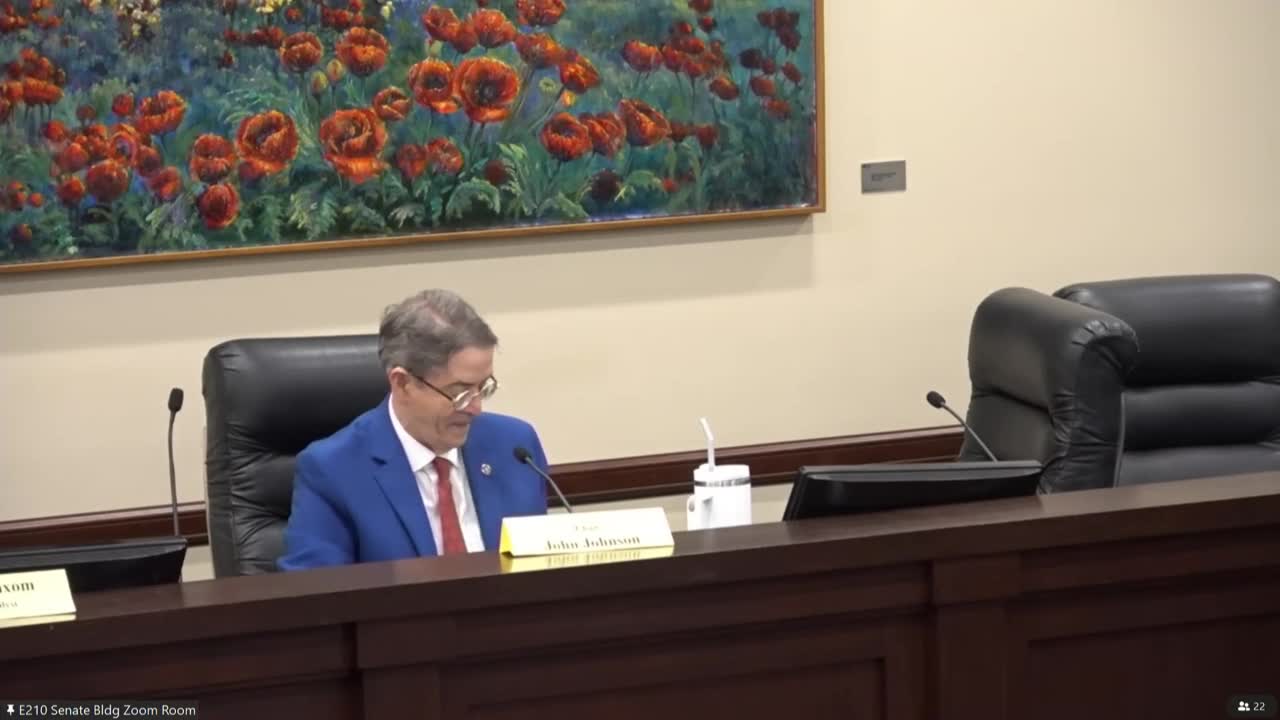Article not found
This article is no longer available. But don't worry—we've gathered other articles that discuss the same topic.

Committee clears School Land Trust amendments; bill added to consent calendar

Panel approves bill giving districts flexibility on reintegrating students convicted or accused of forcible felonies

Committee advances Higher Education Strategic Reinvestment bill after amendments and debate; vote 6–1

